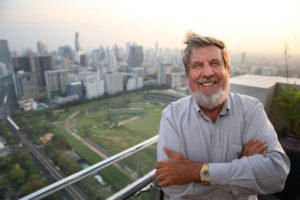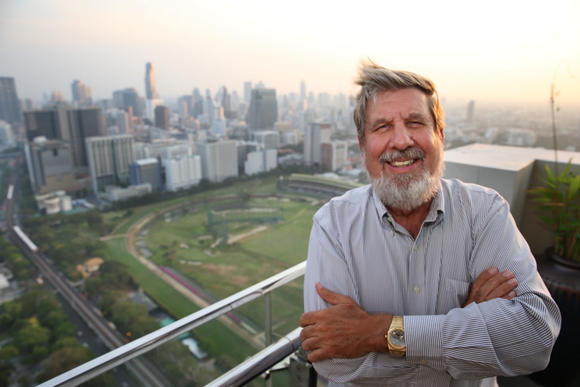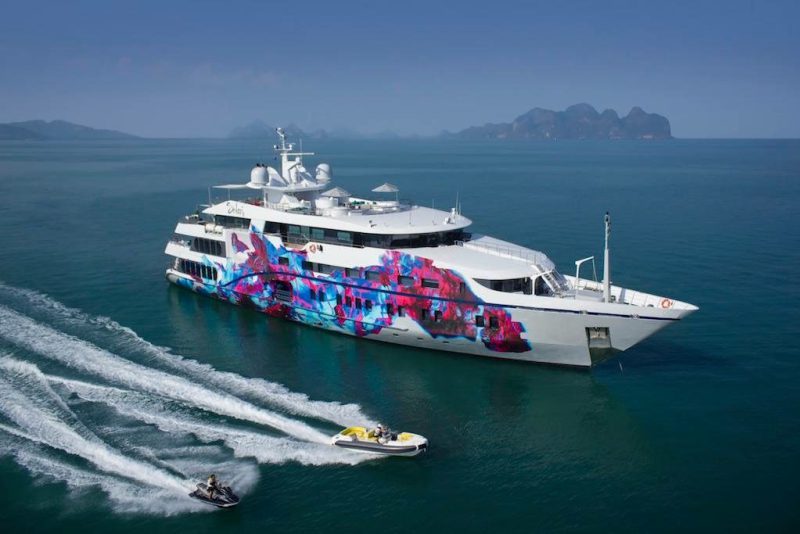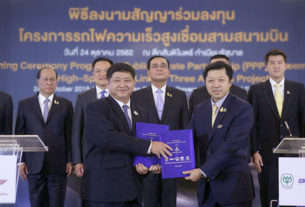
A dynamic energy unique to Asia pulses through Thailand’s capital, where skyscrapers rub shoulders with slums. From his penthouse at the St. Regis Bangkok, a high-rise hotel in the city center, William Heinecke gazes down at the streets below and reflects on his expat life. The 67-year-old American-born businessman was ranked the 20th richest man in Thailand by Forbes magazine last year.
At 18, Heinecke established Minor International, which today operates 22 hotels in Thailand. His assets are estimated at more than $1.3 billion.
In 1952, during the Korean War, Heinecke came to Japan with his father, who worked for the U.S. military. He traveled to Hong Kong and Malaysia with his father, who eventually became a diplomat. In 1963, he arrived in Thailand.
The Land of Smiles was filled with excitement. While attending an international school, Heinecke did part-time work selling ads for an English-language newspaper. “He was hardly at school,” said his 67-year-old wife and former classmate, Kathy.
Heinecke was slated to attend an American university, but, reluctant to abandon the connections he had established in Thailand, he chose to launch a business in his adopted home. He named his company after his status as a minor. If he had gone back to the U.S. at 18, he says he “might have been a normal employee.”
When he was 29, Heinecke purchased a small hotel in Pattaya that was originally developed as a health resort for American soldiers during the Vietnam War. The soldiers had left after the war, so he came up with the idea of converting it into a family-oriented hotel. However, Heinecke got duped by the seller. After he bought the property, it turned out the lease of the land had expired and it was supposed to be back in the hands of the royal family. He made a desperate appeal to the royal family’s property management team.
In Thailand, the royal family holds absolute power. No local entrepreneur would dare speak against or counter it. Perhaps the family’s property bureau was swayed by his unflinching posture; in any case, he was allowed to retain the land. Heinecke went on to develop hotel after hotel on prime royal land. Minor International would even count King Bhumibol as one of its major shareholders.
Heinecke obtained Thai citizenship at 42 and relinquished his U.S. citizenship. “Although I look American, I am seen to be very committed to Thailand,” he said.
Nobody really considers him as a foreigner anymore, said Anil Thadani, 69, an Indian investor and a long-time shareholder of Minor’s. “He is so well integrated into Thailand.”
Heinecke has lived through six military coups in his half century in Thailand. During the 1997 currency crisis, he was on the brink of personal bankruptcy, and in the 2004 Indian Ocean earthquake, he lost a hotel in Thailand’s southern resort of Phuket to a tsunami.
“I never worry about what I have already experienced,” said Heinecke, whose ambition for expansion has taken his ventures to the Middle East and Africa. Minor now has 125 hotels abroad and more than 40% of its sales come from outside Thailand, but he has no intention of moving out of the country that helped foster his entrepreneurial spirit.
As Asia asserts itself as a market, not just a production hub, it is becoming a major battleground for global strategies. How does an outsider put down roots here without being overwhelmed by the sheer energy of the place? One way, as Heinecke’s career shows, is sheer determination.
Source: http://asia.nikkei.com/magazine/20160630-Bye-bye-Britain/Business/Thailand-s-hotel-king-is-in-it-for-life


